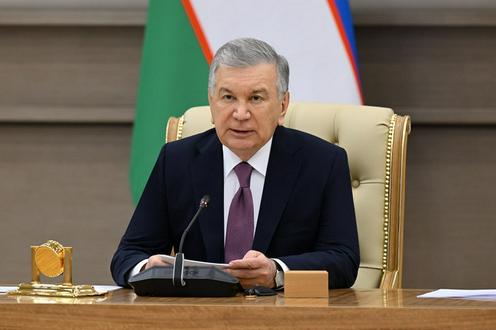President Shavkat Mirziyoyev has approved a sweeping reform of Uzbekistan’s Presidential Administration, eliminating 284 staff positions and streamlining overlapping roles. The changes are outlined in a decree titled “On Measures to Enhance Efficiency, Proactivity and Effectiveness in the System of Public Administration,” according to the president’s press secretary, Sherzod Asadov.
The decree identifies five priority areas for the Presidential Administration:
✅ Education
✅ Business Environment
✅ Judicial and Legal System
✅ Healthcare
✅ Water Resources
To implement reforms effectively in these sectors, five new deputy chief of staff positions have been created.
In addition, new presidential advisor roles have been established to focus on strategic development and foreign policy. Several new departments have also been introduced, covering:
Financial technology
Digitalization and artificial intelligence
Creative economy and tourism
Public safety and rule of law
Event planning and regional visit briefings
Strategic communications
As part of the overhaul, the Agency for Information and Mass Communications (AIMC) has been disbanded. In its place, a National Content Production Center will be established.
All legal and regulatory acts and policy drafts will now be developed based on research from analytical institutions under the Presidential Administration, incorporating recommendations from both domestic and international experts.
Key policy areas will be handled by project offices, and the Presidential Administration will adopt a compliance system aimed at ensuring transparency, strengthening accountability, and preventing corruption.
Government agencies will also face increased public accountability. Plans include strengthening the role of press secretaries and creating a new communications system to engage more directly with citizens and the media.
The decree also grants greater autonomy to ministries and agencies in decision-making and reduces bureaucratic procedures. Agencies will now be able to issue legal regulations within their jurisdiction, with the Ministry of Justice offering a streamlined process for revisions and adaptation to international standards.
To support regional development, employment, and income growth, local administrations (hokimiyats) will be granted expanded economic, administrative, and financial powers. The reform will also revise and optimize the staffing structures of the Cabinet of Ministers and other executive bodies.










